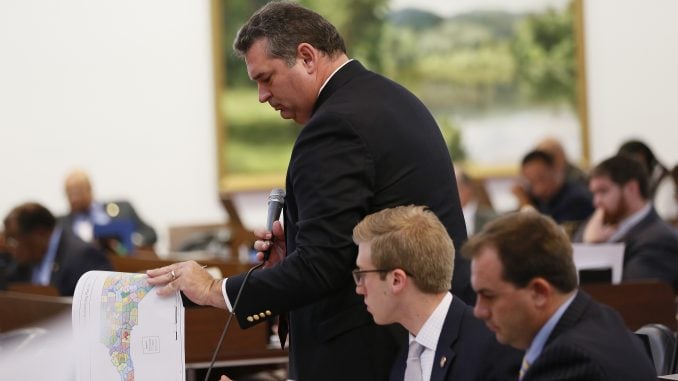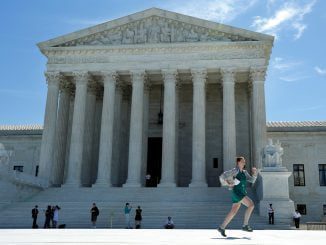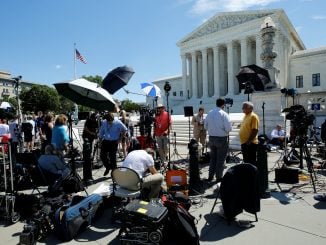
RALEIGH — The U.S. Supreme Court on Thursday blocked a lower court’s order for North Carolina to redraw its congressional maps.
The Supreme Court granted a request by state legislators to suspend a Jan. 9 order by a federal three-judge panel that had given the General Assembly until Jan. 24 to come up with a new map for U.S. House of Representatives districts.
Two liberal justices, Ruth Bader Ginsburg and Sonia Sotomayor, would have denied the application for stay, according to the opinion issued by the high court.
The Supreme Court’s decision to stay the order reduces the chance that the current district lines will be altered ahead of the November mid-term congressional elections.
The short order, stated:
The application for stay presented to The Chief Justice and by him referred to the Court is granted, and it is ordered that the order of the United States District Court for the Middle District of North Carolina, case Nos. 1:16-CV-1026 and 1:16-CV-1164, entered January 9, 2018, is stayed pending the timely filing and disposition of an appeal in this Court.Justice Ginsburg and Justice Sotomayor would deny the application for stay.
The three-judge panel had ruled that previously adopted districts violated the U.S. Constitution’s guarantee of equal protection under the law by reducing the electoral strength of non-Republican voters. Two of the three judges also said the plan ran afoul of the Constitution’s First Amendment by discriminating based on political belief and association.
Those judges on Tuesday had refused to put the ruling on hold.
North Carolina’s congressional maps were challenged in two lawsuits by more than two dozen Democratic voters, the North Carolina Democratic Party and other groups.
The Supreme Court is currently examining two other cases from Wisconsin and Maryland involving claims that electoral districts were manipulated to keep the majority party in power in a manner that violated voters’ constitutional rights. That practice is called partisan gerrymandering.
In the Wisconsin case, Democratic voters are challenging Republican-drawn legislative districts. In the Maryland case, Republicans are claiming Democratic lawmakers drew a congressional district in a way that would prevent a Republican candidate from winning.
Rep. David Lewis (R-Harnett) and Sen. Ralph Hise (R-Mitchell), chairmen of their respective chambers’ redistricting committees, issued the following statement in response to the Supreme Court’s decision:
“We are grateful that a bipartisan U.S. Supreme Court has overwhelmingly halted the lower court’s 11th-hour attempt to intervene in election outcomes, restored certainty to voters, and ensured that, in the coming days, candidates for office can file in the least gerrymandered and most compact Congressional districts in modern state history.”



